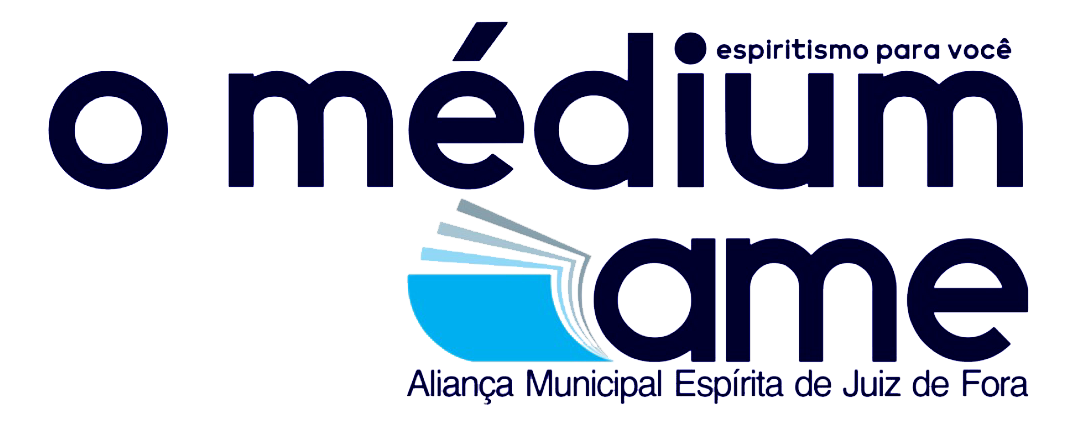The role of work
Cláudio Fajardo
It is a great challenge to analyze the role of work by observing your huge worth in shaping the Spirit, since until very recently working was seen as an inferior attitude, intended only for slaves and socially excluded individuals.
The biblical statement “In the sweat of your face you shall eat bread” [1] was misunderstood until now, and from there, through hurried conclusions, men have chosen idleness as a way to conquer, further deepening your moral fall.
Through Jesus, the greatest Sociologist of all time, work has earned your real meaning:
“But whoever desires to become great among you, let him be your servant. And whoever desires to be first among you, let him be your slave.”[2]
“My Father has been working until now, and I have been working.”[3]
Unfortunately, by becoming the empire’s official religion and being greatly influenced by roman paganism, with time, christianism has abandoned Christ’s initial principles, de-Christianizing itself, making even your followers forget the biggest role of the act of service.
Some missionaries in the service of the Lord have returned to the planet to rescue the first fruits of the Kingdom, which whom we emphasize Francis of Assisi, Martin Luther, Joan of Arc, among others; however, it was from the industrial revolution, through raising awareness among the working class, that the process of reclaiming work as a virtue to be conquered began.
In the 19th century, due to greater maturity of humanity, that the truth could come forward and then we see Kardec, an honest disciple of the Lord, asking the spiritual entities that were guiding him:
Is the necessity of labor a law of nature?
To which they reply:
“Labor is a law of nature…”[4]
And then they go further by stating that work is not only material:
“The spirit labors as much as the body. Every useful occupation is labor.”[5]
Based on it, spiritualism can set your roots in the fertile consciousness of humanity, developing the thesis that puts the act of service in its rightful place. Pietro Ubaldi, at the beginning of the 20th century, inspired by the Voice with the reminiscence of Jesus and the Spirit of Truth, said:
“Work is not a economic need, but a moral one”[6]
To which Emmanuel, through the radiant psychography of Francisco Cândido Xavier, adds and alerts:
However, it’s not worth acting for the sake of acting.
The infernal regions vibrate full of movement.[7]
The drive for a useful purpose can often trap us in inferior feelings, as each one moves according with your evolutionary state. Still bound to rear guard formed by the desires of our subconscious guided by crude instincts, we persist on vibrating only by thoughts of personal comfort and attending to our own interests, forgetting to take the ennobling resources of the soul from the opportunity of action.
“The paths of evolution on human level lay on science and work” says Ubaldi in the referenced work which perfectly aligns with the Spirits when they affirmed in the 676 question in the “Spirit’s Book” that work is a consequence of man’s physical nature, an expiation and a mean of perfecting intelligence.
At this point, returning to the bible texts and using its symbology, the need to “earn your bread with the sweat of your face” only shows up after the loss of paradise. With the rupture of God’s Law and the distancing of higher designs, work rises up as expiation due to the creature’s deep immersion in matter, thus erasing the divine possibilities of man. However, it is necessary to understand that this work becomes the most efficient instrument for rescuing these potentials of the Spirit through improving the creature’s intelligence and self-enlightening, as the evangelical expression says “Let your light so shine before men” [8]
In the Gospel, Jesus is the greatest example, never once idle, even throughout festivities and dinners, the Lord seized the opportunity to serve and teach through your inspiring acting on behalf of others.
Back to the author of “A Grande Síntese” (The Great Synthesis), he reinforces:
“Your hard-working and creative dynamism is wonderful, but do not take it as an absolute goal, as a definitive and complete way of living, but only as a means to reach a further state and somewhat superior.”
Emmanuel seems to agree:
“In addition to the work obligation which is paid immediately, it is important to focus on the pleasure of serving.” [9]
However, it is known that this proposed replacement by Emmanuel happens naturally. Modern man still thinks himself as a prisoner of the material interests, and life, always dynamic in its action, drives him to make important achievements for your current evolution plan by working on immediate issues. Man thinks he solely works to enrich himself and enjoy earthly possessions; however, Providence subtly teaches him to strive, collaborate and serve to achieve your higher purpose.
“Human activity is then illuminated by an inner light; it is enhanced with a much higher meaning” reminds Ubaldi, and continues:
“All ills are due to our social imperfection and our inability to know how to do better.”
“A Grande Síntese” chapter 79 is full of statements that help to understand the usefulness of work and the evolution of man’s understanding of it. Like Emmanuel in a previous quote, Ubaldi further affirms:
“The economic concept of work must be replaced by that of work as a social function, or better yet, as a constructive biological function.”
It is shown throughout the reflections that the role of work is to make man better, a goal of existence itself. It is undeniable that the act of serving is the best instrument of self-enlightenment for man is all eras, for if:
“Action-based work transforms the environment; service-oriented work transforms man.” [10]
As the meaning of life is forward and higher, this impulse of seeking for the better, which is God whitin us, leads us, as earlier said, to work for own self-comfort (The Law of Preservation) and loved ones (The Law of Love and Charity). Nevertheless, as the idea of the meaning of life is evolution, humanity keeps perfecting itself, thereby improving legislation which guides us to an ethics closer to the true moral: the observance of God’s Law. As a consequence, through service-based work, the whole environment is improved, creating greater comfort and more appropriate solutions for problems that have been challenging humanity since the beginning.
“[…] Better yet, as a constructive biological function.”, then again, life’s project for everyone is to evolve. Evolution means to overcome our animal nature and hone our morals, in addition to constantly develop and even more advanced biotype, able to experience a superior ethics in a more spontaneous way.
Anthropology also confirms that the biological type of the human being has evolved considerably from primitive man to the present day. Not only has the physical organism changed, but psychology has evolved as well. The development of a more advanced psyche does not happen by chance; it is also the result of sacrifice, effort, and selflessness that humanity learns each day in its relentless and unceasing pursuit of a clearer reflection of the celestial realms. Only through constant repetition do automatisms and increasingly clearer and nobler skills emerge.
In conclusion to these humble reflections, it is essential to draw upon the teachings of Kardec, Ubaldi, and Emmanuel, but most importantly, from the example of the greatest Educator of humanity, Jesus:
- Work is an instrument of eternal construction.
- It is the Spirit’s discipline.
- Work is not a social condemnation for the less fortunate but a duty to all, to not cooperate is immoral.
- Selflessness begins where duty ends; it is going to the second mile that Jesus teaches us in His sermon, turning the other cheek, handing over your coat as well when asked for your shirt
[1] Bible. Genesis 3:19.
[2] Bible. Matthew 20:26-27.
[3] Bible. John 5:17.
[4] Kardec, Allan. The Spirits’ Book. 50th ed. Rio de Janeiro: FEB, 1980. Question 674.
[5] Kardec, Allan. The Spirits’ Book. 50th ed. Rio de Janeiro: FEB, 1980. Question 675.
[6] Ubaldi, Pietro. A Grande Síntese. 18th ed. Campos dos Goytacazes: Fraternity of Francis of Assisi, 1997. Chapter 79.
[7] Xavier, Francisco C. / Emmanuel. Pensamento e Vida. 9th ed. Rio de Janeiro: FEB, 1991. Chapter 7.
[8] Bible. Matthew 5:16.
[9] Xavier, Francisco C. / Emmanuel. Pensamento e Vida. Chapter 7.
[10] Xavier, Francisco C. / Emmanuel. Pensamento e Vida. Chapter 7.



